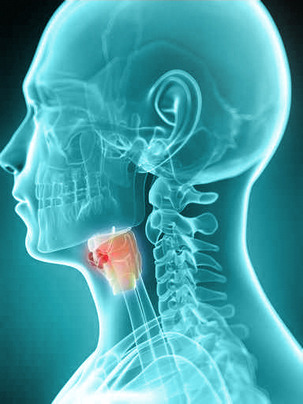
Subakute Thyreoiditis de Quervain
There are different forms of thyroid infection.
The most common form is subacute thyroiditis or de Quervain’s thyroiditis, which is caused by viruses. The patient usually has an infection of the upper respiratory tract. A thyroid infection can also occur 2 to 3 weeks after a viral infection. This form of thyroiditis is rare, but clearly more common than the acute form.
The most frequent symptoms are:
- Extremely painful enlargement of the thyroid gland with radiation into the ear and jaw angle
- Fever
- Sensitivity to pressure in the neck area
- Difficulty swallowing
- Heavy sweating
- Restlessness
- Heart palpitations
Therapy:
With this form, there is spontaneous improvement in 80% of cases. The pain symptoms respond favorably to anti-inflammatory pain killers such as Parkemed (mefanamic acid). When there are pronounced cardiovascular symptoms due to hyperfunction, beta blockers (Inderal) can be used to alleviate the adverse effect of the thyroid hormones on the heart.
